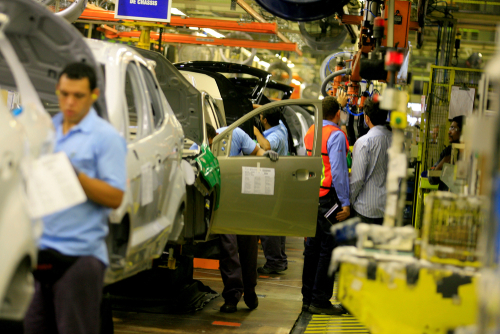
U.S. Sen. Ron Wyden (D-OR), chair of the Senate Finance Committee, asked eight major automakers whether automotive supply chains might contain material sourced using forced labor, violating federal trade laws.
In letters to American Honda Motor Co., Inc.; Ford Motor Company; General Motors Company; Mercedes Benz USA, LLC; Stellantis N.V.; Tesla, Inc.; Toyota Motor North American, Inc.; and Volkswagen Group of America, Inc., Wyden asked companies to report on if their supply chains included materials sourced from the Xinjiang region of China, known for reports of forced labor.
“Unless due diligence confirms that components are not linked to forced labor, automakers cannot and should not sell cars in the United States that include components mined or produced in Xinjiang,” Wyden wrote. “The United States considers the Chinese government’s brutal oppression of Uyghurs in Xinjiang an ‘ongoing genocide and crimes against humanity.’”
The letters stem from a report by researchers at the Helena Kennedy Centre for International Justice at Sheffield Hallam University that found links between companies in Xinjiang and automakers importing parts from them.
“I recognize automobiles contain numerous parts sourced across the world and are subject to complex supply chains. However, this recognition cannot cause the United States to compromise its fundamental commitment to upholding human rights and U.S. law,” Wyden continued.
Wyden asked automakers to conduct their own supply chain mapping and analysis of raw materials, mining, processing, and parts manufacturing to determine if its supply chain is linked to companies in Xinjiang, extending to sub-suppliers of materials like mines, mineral processors, and other affiliated entities. Additionally, he asked automakers to determine if their supply chain has any links to the Xinjiang Uyghur Autonomous Region government’s “poverty alleviation” program or the “pairing-assistance” program outside of Xinjiang.
The letters also ask the automakers to report back to Wyden’s office on their supply chain mapping efforts and what steps the company has taken to eliminate links to components and materials processed in Xinjiang, up to and including how the company has terminated or curtailed or threatened to terminate or curtail a relationship with a supplier or sub-supplier with links to forced labor.